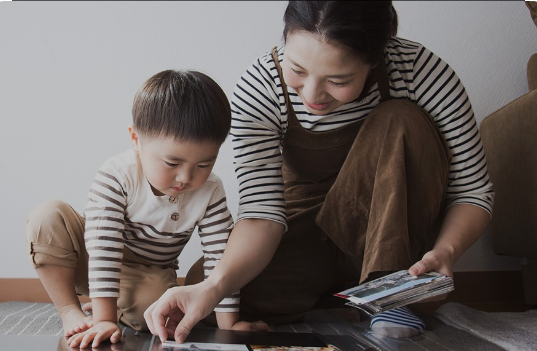Children require the intricate and nuanced care provided by mothers to flourish into well-rounded adults. A mother’s distinct bond with her family enables her to offer physical, psychological, and moral nurturing that is irreplaceable. However, it’s crucial to acknowledge that the concept of motherhood differs significantly across cultures. Instead of enforcing a singular notion of what a mother should be, we should honor and respect the diversity that exists.
Assumptions often prevail that a child’s care is interchangeable and can be provided by anyone. In “traditional” societies, mothers tend to assume this role, perhaps due to societal subordination or the inertia stemming from their early care during infancy. However, childcare is not easily substitutable, as there exists a profound psychological need for a child to receive attention and care from its mother—there is simply no substitute for Mama.

Upon embracing motherhood, women undertake intricate and multidimensional responsibilities within the household and in parenting. According to University of Washington professor Jennifer Romich, these responsibilities extend far beyond basic childbearing, encompassing aspects such as emotional support, moral guidance, and mediation of family interactions.

Exploring literature, the protective, psychologically supportive, and intellectually guiding characteristics of a mother uniquely impact a child’s development into a healthy adult.
Physical and Psychological Care:
Psychologist John Bowlby notes that mothers are responsible for providing their children with essential biological needs, ensuring health and safety. Yet, beyond physical care, a mother’s nurturing character establishes a unique bond with the child, shaping their emotional well-being from early stages to maturity.

Values and Educational Guidance:
Sociologist Thurston Domina emphasizes the crucial role mothers play in teaching children about basic life concepts, morality, and cultural heritage. A mother’s influence persists throughout a child’s life, impacting choices, relationships, and ambitions.
Fostering Family Relationships:
Mothers play a key role in shaping connections within the family, influencing relationships with fathers, siblings, and extended relatives. Managing a household goes beyond chores; mothers mediate family interactions and its engagement with the outside world.

The Impact of Culture and Society:
The role of a mother varies across cultures, and it’s essential to embrace this diversity. Rather than imposing rigid notions of a woman’s place, we should recognize the different circumstances and challenges women navigate worldwide.
Challenges and Self-Care:

Modern economies have presented challenges for mothers juggling work, household responsibilities, and childcare. It is crucial for mothers to prioritize self-care to maintain vitality and enthusiasm in caring for their families.
Advice for Mothers:
The Handbook of Parenting, Volume I, offers practical advice for mothers:
- Remaining Available: Engage with children throughout the day and remain physically and emotionally accessible.
- Taking Concern while Uplifting: Encourage and love children, emphasizing security and love over harsh punishments.
- Setting an Outstanding Example: Demonstrate positive behavior, serving as a role model for integrity, kindness, and responsibility.
- Showing Tolerance and Understanding: Acknowledge the complexity of motherhood, recognizing that children make mistakes and need patience and understanding.
- Consulting Others: Mothers don’t have to navigate parenthood alone; seeking support from spouses, family, and friends is both appropriate and beneficial.
